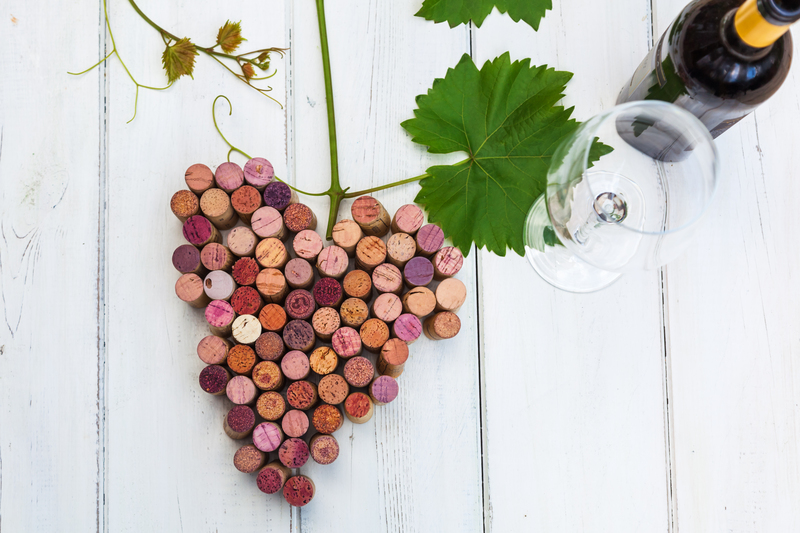Embrace Minimalism: How De-cluttering Leads to Stress Relief
Are you overwhelmed by the chaos surrounding you? Discover how embracing minimalism and the simple act of decluttering can lead to profound stress relief and transform your wellbeing. Dive into a comprehensive guide that explores the connection between minimalism and mental peace.
Understanding Minimalism: More Than Just Getting Rid of Stuff
Minimalism is often misunderstood as an aesthetic trend or a design principle marked by stark white walls and minimal decor. But at its core, minimalism is a lifestyle choice that champions intentional living. It's about removing physical, emotional, and digital excess in favor of what truly matters. From owning fewer possessions to cultivating meaningful experiences, embracing minimalism means focusing on quality over quantity.
The central philosophy is simple: By eliminating unnecessary clutter, you make room for what's most important in your life. This is crucial for those seeking to relieve stress, as environmental mess directly impacts psychological well-being.
What Exactly Is De-cluttering?
- De-cluttering goes beyond tidying up. It's the purposeful removal of excess items from your environment.
- It entails making conscious decisions about what adds value to your life and what doesn't.
- This process often extends into digital, emotional, and mental domains as well.
- Decluttering for stress relief isn't about depriving yourself, but sculpting a more manageable, joyful lifestyle.

The Science: How Clutter Contributes to Stress
Research shows a direct link between cluttered environments and elevated stress levels. A 2016 study by the Princeton University Neuroscience Institute discovered that visual clutter competes for your attention, reducing your ability to focus and process information. This constant overstimulation triggers anxiety, distraction, and feelings of overwhelm.
- Increased Cortisol Levels: People with cluttered homes often report higher levels of cortisol, the stress hormone.
- Decision Fatigue: More belongings create more choices, which can quickly lead to mental exhaustion.
- Sleep Disruption: Messy sleeping spaces are linked to poor sleep quality and increased insomnia.
- Relationship Tension: Shared living spaces full of clutter often spark arguments and resentments among roommates or family members.
Embracing minimalism helps reverse these effects. By creating a streamlined, orderly environment, you reduce cognitive overload and introduce a sense of control and peace.
How Embracing Minimalism Leads to Stress Relief
Step 1: Environmental Serenity
Imagine coming home to a clean, serene space--no piles of paperwork or overflowing closets, just the essentials that uplift you. This physical order translates into mental clarity. With less visual "noise," your mind can relax and recharge, alleviating stress naturally.
Step 2: Emotional Release
Sentimental clutter can weigh us down emotionally. By letting go of items tied to negative memories, or excess possessions that remind you of unfinished business, you reclaim emotional energy. The minimalist mindset encourages living in the present rather than being anchored to the past.
Step 3: Improved Productivity and Focus
- Less clutter means fewer distractions.
- Your workspace becomes more organized, making it easier to concentrate and complete tasks efficiently.
- This, in turn, lowers work-related stress and increases satisfaction.
Step 4: Enhanced Self-Control & Confidence
Practicing de-cluttering requires decision-making and self-discipline. Over time, these skills spill into other aspects of your life, building confidence and resilience. Minimalist living empowers you to take intentional actions, whether it's setting healthy boundaries or making mindful purchases.
Decluttering Process: Practical Steps to Begin Your Minimalist Journey
1. Start Small
- Pick one room, drawer, or surface (like your bedside table) to tackle at a time.
- Breaking the task down makes it less daunting and ensures a sense of achievement with each completed step.
2. Sort and Categorize
- Make three piles: Keep, Donate, and Discard.
- If you haven't used or needed an item in the last year, it likely belongs in the Donate or Discard pile.
3. Be Honest and Objective
- Avoid the "what if I need it someday?" trap.
- Trust yourself to let go of what doesn't enhance your daily life or bring happiness.
4. Organize What Remains
- Assign a clear purpose and designated place for everything that stays.
- Use storage solutions thoughtfully - remember, minimalism isn't about hiding clutter, but truly reducing it.
5. Establish Ongoing Habits
- Schedule regular (monthly or seasonal) "mini-declutter" sessions.
- Before acquiring new items, ask yourself if they genuinely add value.
Digital De-cluttering for Modern Minimalism
Clutter isn't just physical. Digital spaces--emails, apps, photos, files--often become as chaotic as our homes. Decluttering your digital life reduces stress by simplifying your virtual environment.
- Clean out your inbox and unsubscribe from unnecessary newsletters.
- Organize files into clear folders; delete what you will never use again.
- Limit distractions by removing rarely used apps from your devices.
- Set time aside for digital maintenance, just like you do for your home.
Psychological Benefits: How Minimalism Reduces Stress
1. More Time and Energy
- Less time is wasted searching for lost items or cleaning up cluttered spaces.
- You have more energy for hobbies, relationships, and self-care.
2. Freedom from Materialism
- Minimalism for stress relief promotes contentment with less.
- Breaking the cycle of accumulation offers a deep sense of liberation and satisfaction.
3. Clearer Mindset
- Simplifying your environment simplifies your thoughts.
- This makes it easier to focus on goals, make decisions, and tackle daily challenges.
4. Enhanced Well-being and Happiness
- Living with intention boosts gratitude and mindfulness.
- This holistic stress relief technique can even help reduce symptoms of anxiety and depression.
Minimalism in Practice: Real-Life Success Stories
Minimalism isn't a fad--it's a tried-and-true solution for real people:
- Sarah's Story: Overwhelmed by her hectic household, Sarah committed to a month-long declutter challenge. She reports feeling calmer, more focused, and her children even began to play creatively with fewer toys.
- James' Journey: After digital decluttering, James found it easier to concentrate at work, reducing his hours spent on email and increasing his productivity.
- The Family Transformation: The Smith family adopted minimalism after a stressful move. By only keeping what they loved, their new home feels like a sanctuary, and family time is now filled with connection instead of chores.
Addressing Common Concerns and Misconceptions
- "Isn't minimalism boring?" On the contrary, living minimally means curating your possessions and experiences to only include the most meaningful and enjoyable.
- "I have sentimental items I can't part with." Minimalism doesn't require you to get rid of everything; it encourages mindful keeping. Treasured items can and should stay, as long as they truly add value to your life.
- "Minimalism is only for single people or the wealthy." This lifestyle is for everyone, regardless of background or financial status. It's adaptable and scalable to any situation.
Expert Tips for Maintaining Minimalism and Continued Stress Relief
- Set specific intentions: Define what you want to achieve with minimalism (less stress, more space, better mental health).
- Practice gratitude: Regularly reflect on and appreciate what you have.
- Prioritize quality: Invest in fewer, better-made possessions.
- Declutter regularly: Make it a habit, not a one-time event.
- Limit incoming clutter: Adopt a "one-in, one-out" rule for new items.
Conclusion: Experience Lasting Stress Relief Through Minimalism
Embracing minimalism and the decluttering journey is a radically empowering and liberating path toward lasting stress relief. Whether you're looking to simplify your home, digital life, or mind, the benefits are far-reaching: improved focus, better relationships, emotional stability, and a profound sense of peace.
If you're ready to experience the transformative power of minimalism for stress relief, start today--one small step at a time. Let go of what no longer serves you and make space for what truly matters. Your mind, body, and soul will thank you.

Frequently Asked Questions: Minimalism and Stress Relief
How quickly can I expect to feel less stressed after decluttering?
Many people notice immediate emotional relief after even a brief decluttering session. Over time, as you reduce more excess and cultivate minimalist habits, you'll likely experience ongoing reductions in anxiety and stress.
Can minimalism help with work-related stress?
Absolutely. A minimalist workspace reduces distractions and increases productivity. Digital minimalism--like keeping your inbox tidy--also makes professional life smoother and less burdensome.
Is there a "right" way to become a minimalist?
No two minimalist journeys look the same. Experiment with different decluttering methods (like the KonMari method, Swedish Death Cleaning, or Minimalist Game), and adopt what feels natural and sustainable for you.
Takeaway: Your New Minimalist, Stress-Free Life Awaits
By intentionally de-cluttering and embracing a minimalist lifestyle, you gift yourself the space, clarity, and calm needed to thrive in a busy world. Begin today by parting with the things that weigh you down--and step confidently into a life of genuine abundance, where less truly becomes more.